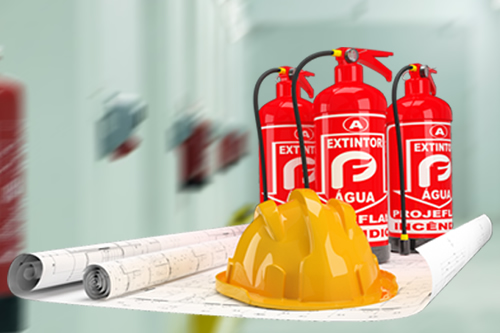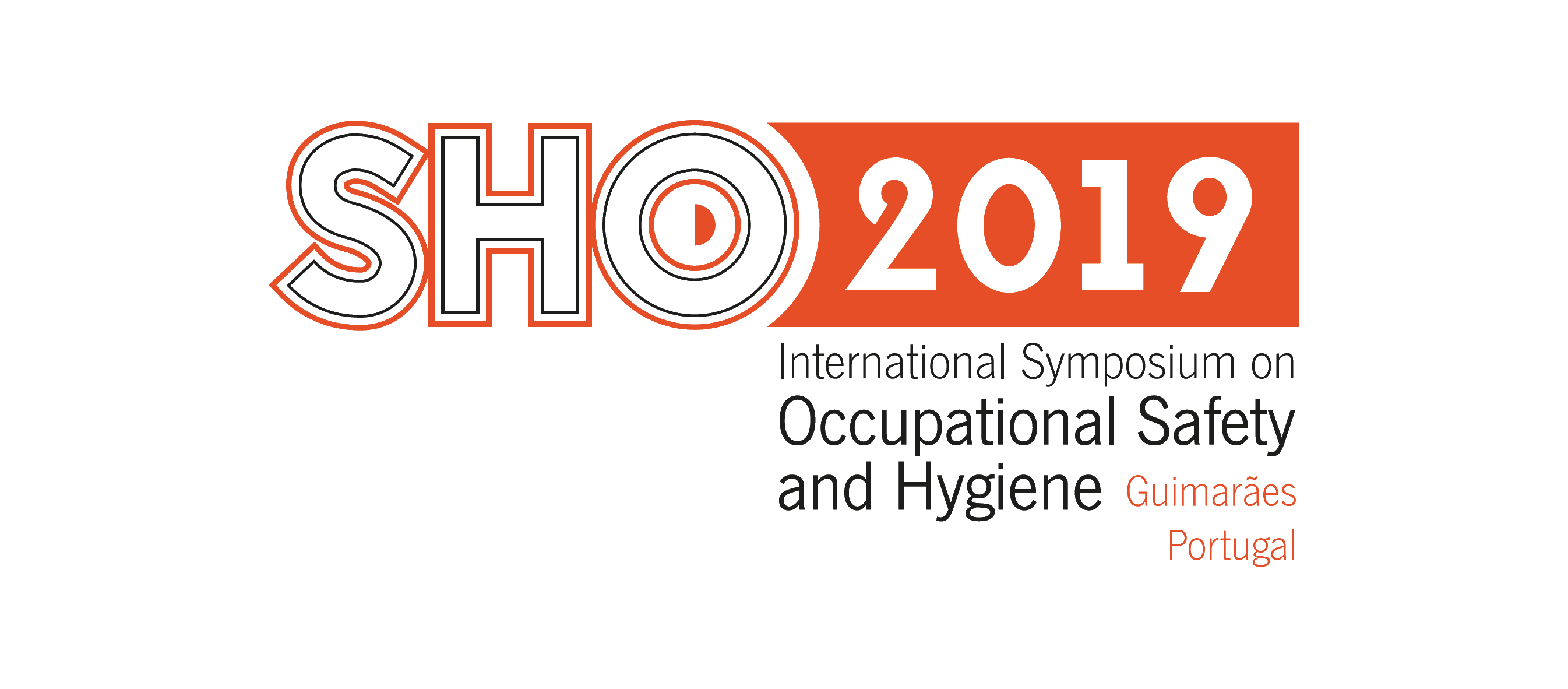
15 and 16 of april
Missing
Day(s)
:
Hour(s)
:
Minute(s)
:
Second(s)
PROGRAM
This year the PROGRAM has undergone some changes regarding the previous format:
- On the first day of the event will have the morning dedicated to the realization of courses within the thematic of SHO.
- The official opening of SHO2019 will be followed by a Round Table.
These will be the main changes. We will make the information available here. Any question you can contact us through e-mail sho2019@spoho.pt.
COURSES
This year at SHO2019 we will make available to the participants several courses on the subject of safety.
Participation in a course will entitle to a certificate of the course. Participation is free for all enrollees on SHO2019 but the course must bechoosen on the page where one is registered using the corresponding login data.
For other interested, the registration will have a value of € 20 (with the right of a coffee break and certificate). To do so, one must make the registration HERE until April 14. Registration will also be accepted in the same day at the secretariat, limited to the number of vacancies.
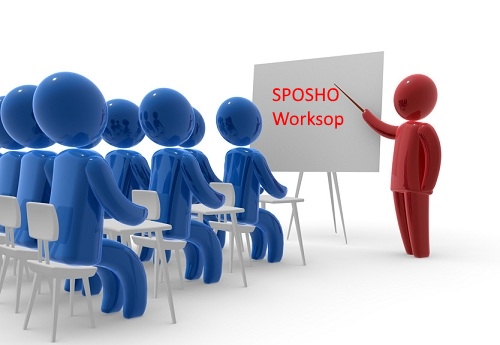


Round Table


R&D on Occupational Safety and Health in Relation University vs Company
Participant
– Professor Doutor António Cardoso (Vice-Rector of University of Porto)
– Professor Doutor Filipe Vaz (Pro-Rector da University of Minho)
– Dr. Carlos Pereira (Director of Services for the Promotion of Safety and Health at Work, ACT)
– Eng. José Marçal (Brisa)
– Eng. Domingos Machado (Continental Mabor)
– Professor Doutor Pedro Arezes (SPOSHO – Moderator)
INVITED SPEAKERS
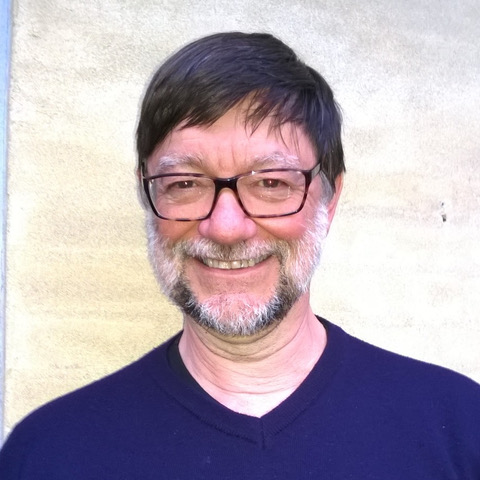
Anders Kabel
Development of OSH – a common challenge for managers, workers and OSH-profession
Anders Kabel is president of AM-PRO – the umbrella organisation for occupational safety and health associations and companies in Denmark. He is graduated as a Master of Architecture from The Royal Danish Academy of Fine Arts, School of Architecture, Copenhagen (Denmark), specialized in the field of workspace design and occupational safety and health. Anders Kabel has served as a teacher in occupational safety and health at Roskilde University and Technical University. 1977-1999 he was head of Department of occupational safety and health in the Association of Managers and Supervisors, where he developed the role of managers and supervisors in the cooperation regarding safety and health at company level. 1999-2008 he was director of the Association of Preventive Services (occupational health services) in Denmark. On an initiative from EU-OSHA he was member of the European group that established The European Network of Occupational Safety and Health Professionals (ENSHPO), where he was vice president 2002-2008. From 2008 he became director of The Preventive Service for the Construction Industry in Denmark (Bam-bus), established and financed by the social partners in the construction industry. Anders Kabel is now partly retired but serves as part-time assistant professor at Aalborg University, and as research assistant in the private research and development company Team Worklife, where he works with projects regarding silica in the demolition industry and the cooperation between safety and health coordinators and clients in the construction process. In 2017 he was one of the initiators to establishing AM-PRO, where he now is president.
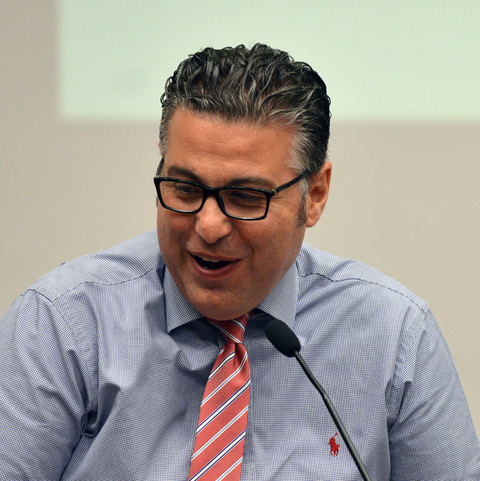
George Boustras
On the interface of safety and security
George Boustras is Professor in Risk Assessment at European University Cyprus, Dean of the Ioannis Gregoriou School of Business Administration and Director of the Centre of Excellence in Risk and Decision Science (CERIDES). George is a PhD in Probabilistic Risk Assessment from CFES at Kingston University London. George was Honorary Research Fellow at CPSE at Imperial College London, and KTP Research Fellow at FSEG at the University of Greenwich. He was Member of the Socio-Economic Committee of the European Chemicals Agency (ECHA) and Member of the Academic Committee of ERNCIP – the European Research Network of Critical Infrastructure Protection at JRC Ispra. He sits at the Management Committee of Secure Societies – Protecting Freedom and security of Europe and its citizens of “HORIZON 2020”. He was appointed by the Ministerial Council of the Republic of Cyprus to Head the Special Task Force that oversaw the re-engineering of the State’s first responders. He was hired by World Bank to contribute to the modernisation of the Fire Service of the Hellenic Republic. The President of the Republic of Cyprus appointed him, as Vice President in the Energy Strategy Council. He consulted the Ministry of Defence of the Republic of Cyprus in the Risk Assessment of Unexploded Ordnance as part of Gas Exploration. George is Editor-in-Chief of Safety Science (Elsevier) and Member of the Editorial Board of Fire Technology (Springer), the International Journal of Emergency Management and International Journal Of Critical Infrastructure (both Inderscience).
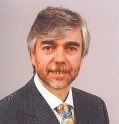
António Victor Carreira de Oliveira
The Responsible Industry System and the Challenges of Agenda 2030 - United Nations Sustainable Development Goals
Bachelor in Chemical Engineering, Master in Economics and Policies for Sustainable Development, and Specialist in Safety Engineering, by the Polytechnic Institute of Lisbon. Senior Member of the Engineers Order, Specialist in Safety Engineering by the Engineers Order, and Coordinator of the Special Committee on Security Engineering and Ambassador of the ODS Portugal Alliance (ODS 9-Industry, Innovation
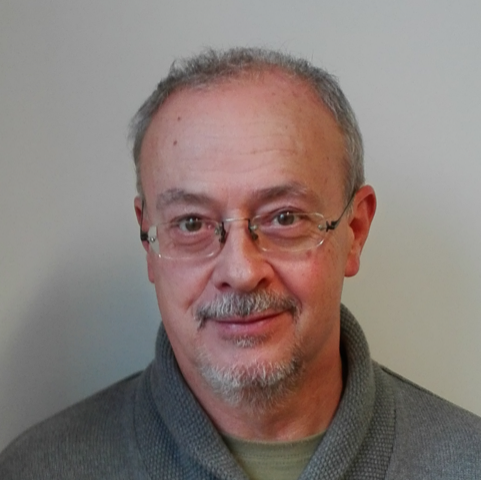
António Brandão Moniz
Occupation safety in automated environments: needs and consequences
Professor at the Faculty of Sciences and Technology of University NOVA Lisbon, with habilitation for Full Professorship since 2001. Is coordinator from 2009 of the PhD Programme on “Technology Assessment” (UNL). Since 2011 is also Researcher of the Institute of Technology Assessment and Systems Analysis at the Karlsruhe Institute of Technology. Is Director of the Observatory of Technology Assessment (OAT) of CICS.NOVA centre (since 2015). He is Sociologist (diploma and doctorate), and he is established at the Faculty of Sciences and Technology (UNL) since 1983. On 1999 was “Visiting Researcher” at the Brown University (USA). From 2002 to 2004 was at the Fraunhofer Institut für Systemtechnik und Innovationsforschung (ISI-FhG), and on 2007-08 was at the Forschungszentrum Karlsruhe, Germany. In 2017 he was at the School of Labour Studies of the McMaster University (Canada). Was President (elected) of the Department of Social Applied Sciences of Faculdade de Ciências e Tecnologia (UNL), 2001-2007. He is member of the Strategy Board of CICS.NOVA (since 2016). Was an executive elected member of the RC30 Research Committee on Sociology of Work (1998-2002) and is from 2014 Board member of the RC23 Research Committee on Sociology of Science and Technology of ISA-International Sociological Association. Published recently a book on Robotics and Work [Robótica e Trabalho: o Futuro Hoje, Lisboa, Glaciar, 251 pp.]
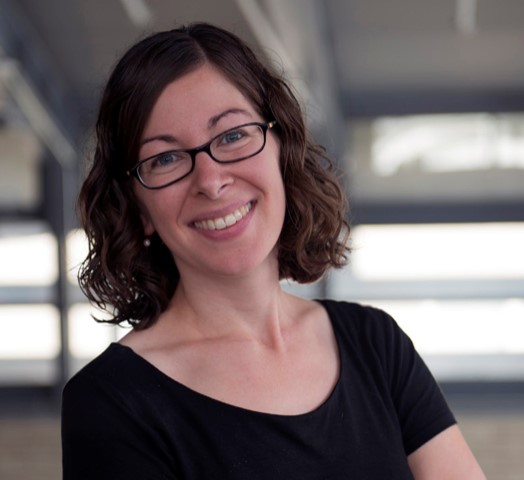
Leia Stirling
Quantifying the Qualitative: Defining Measures of Human Performance Using Wearable Sensors
Leia Stirling is the C.S. Draper Assistant Professor in the Department of Aeronautics and Astronautics at the Massachusetts Institute of Technology, Associate Faculty of the Institute for Medical Engineering & Science, and Co-Director of the Human Systems Lab. Her research quantifies human performance and human-machine fluency in operational settings through advancements in the use of wearable sensors. She applies these measures to assess human performance augmentation, to advance exoskeleton control algorithms, to mitigate injury risk, and to provide relevant feedback to subject matter experts across many domains, including clinical, space, and military applications. Currently, Stirling is a member
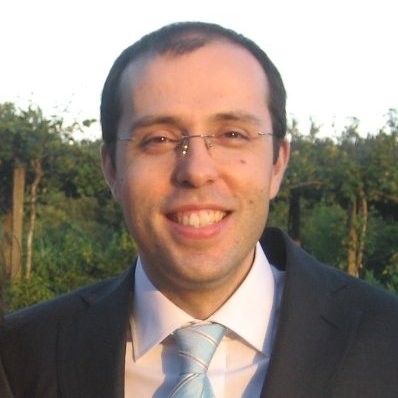
Nélson Costa
Workload Measures—Recent Trends in the Driving Context
Nélson Costa is an Ergonomics and Human Factors Professor at the University of Minho (Portugal), since 2009. Nélson has a
COMMITTEE
Chairman
Secretary
Organizing committee
Gonçalo Perestrelo, SPOSHO
J. Santos Baptista, FEUP
Mónica Barroso, University of Minho
Nélson Costa, University of Minho
Patrício Cordeiro, University of Minho
Paula Carneiro, University of Minho
Rui Melo, University of Lisbon
International scientific committee
Alberto Villarroya López | Hospital Lucus Augusti, Servizo Galego de Saúde, Spain
Alfredo Soeiro | Universidade Porto – FEUP, Portugal
Ana C. Meira Castro | ISEP, School of Engineering of Polytechnic of Porto (ISEP), Portugal
Ana Colim | University of Minho, Portugal
Ana Ferreira | Polytechnic Institute of Coimbra, Environmental Health, Portugal
Anabela Simões | Universidade Lusófona, Dep. de Aeronáutica e Transportes, Portugal
Angela C. Macedo | University Institute of Maia (ISMAI), Portugal
Angélica S. G. Acioly | Federal University of Paraiba, Brazil
Anil R Kumar | San Jose State University, USA
Anna S P Moraes | University of Minho, Portugal
Antonio J. Cubero Atienza | Cordoba University (Spain). Dept. of Rural Engineering, Spain
Antonio López Arquillos | University of Málaga, Spain
António Oliveira e Sousa | University of Algarve, Institute of Engineering (ISE), Portugal
António Pereira de Oliveria | APOPARTNER, Portugal
Beata Mrugalska | Poznan University of Technology, Fac. Engineering Management, Poland
Béda Barkokébas Junior | University of Pernambuco, Brazil
Bianca Vasconcelos | University of Pernambuco – UPE, Brazil
Camilo Valverde | Católica Porto Business School – Univ. Católica Portuguesa, Portugal
Carla Barros | Fernando Pessoa University, Portugal
Carla Viegas | ESTeSL-IPL, Portugal
Catarina Silva | Faculty of Human Kinetics, University of Lisbon, Portugal
Celeste Jacinto | Faculty of Science and Technology, NOVA University of Lisbon, Portugal
Celina Pinto Leão | School of Engineering of University of Minho, Portugal
Cezar Benoliel | Latin American Association of Safety at Work Engineering, Brazil
Cristina Madureira dos Reis | University of Trás-os-Montes and Alto Douro, Portugal
Delfina Gabriela G Ramos | Polytechnic Institute of Cávado and Ave, Technology School, Portugal
Denis A. Coelho | C-MAST, DEM – Universidade da Beira Interior, Covilhã, Portugal
Divo Quintela | ADAI – LAETA, University of Coimbra, Portugal
Duarte Nuno Vieira | Faculty of Medicine, University of Coimbra, Portugal
Eliane Maria Gorga Lago | University of Pernambuco, Brazil
Ema Sacadura Leite | CHLN Occupational Department, ENSP-New University of Lisbon, Portugal
Emília Duarte | IADE – Universidade Europeia, UNIDCOM, Portugal
Emilia R. Kohlman Rabbani | University of Pernambuco, Brazil
Enda Fallon | Industrial Engineering, National University of Ireland Galway, Ireland
Evaldo Valladão | Brazilian Academy of Work Safety Engineering, Brazil
Fernanda Rodrigues | Civil Engineering Department – University of Aveiro, Portugal
Fernando Gonçalves Amaral | Universidade Federal do Rio Grande do Sul (UFRGS), Brazil
Filipa Carvalho | Laboratório de Ergonomia, FMH, CIAUD, Universidade de Lisboa, Portugal
Filomena Carnide | Faculty of Human Kinetics, University of Lisbon, Portugal
Florentino Serranheira | NOVA National School of Public Health, Portugal
Francisco Fraga López | Universidad de Santiago de Compostela, Spain
Francisco Rebelo | Universidade de Lisboa, FMH, Laboratório de Ergonomia, Portugal
Francisco Silva | Technological Centre for Ceramics and Glass (CTCV), Portugal
Guilherme Teodoro Buest Neto | ABENC – Brazilian Association of Civil Engineers, Brazil
Gustavo Adolfo Rosal López | PrevenControl, Spain
Hélio Cavalcanti Albuquerque Neto | Federal University of Piauí, Brazil
Hernâni Veloso Neto | RICOT, Institute of Sociology, University of Porto, Portugal
Ignacio Castellucci | CETyFH, Facultad de Medicina, Universidad de Valparaíso, Chile.
Ignacio Pavón | ETSI Industriales, Universidad Politécnica de Madrid. Spain
Isabel L. Nunes | Universidade NOVA Lisboa, Faculty of Science and Technology, Portugal
Isabel Loureiro | University of Minho, Portugal
Isabel S. Silva | chool of Psychology, University of Minho, Portugal
J Torres da Costa | MD PHD Faculdade Medicina University Porto, Portugal
J. Santos Baptista | Faculty of Engineering, University of Porto, Portugal
Jack Dennerlein | University of Harvard, USA
Javier Llaneza | Asociación Española de Ergonomía (Spanish Ergonomics Society), Spain
JC Guedes | Faculty of Engineering of University of Porto (FEUP), Portugal
Jesús A. Carrillo-Castrillo | Universidad de Sevilla, Spain
Joana Santos | School of Health, Polytechnic Institute of Porto, Portugal
João Areosa | CICS.NOVA; ESCE/IPS; RICOT, Portugal
João Ventura | IN+ (Center for Innov., Technology and Policy Research), IST, Portugal
Jorge Gaspar | ISEC Lisboa – Higher Institute of Education and Sciences, Portugal
Jorge Patrício | National Laboratory for Civil Engineering, Portugal
José Cardoso Teixeira | University of Minho, Portugal
José Carvalhais | Faculty of Human Kinetics, University of Lisbon, Portugal
José Keating | José Keating – School of Psychology, University of Minho, Portugal
José Miquel Cabeças | Faculty of Science and Technology, NOVA University of Lisbon, Portugal
José Pedro T Domingues | Department of Production and Systems, University of Minho, Portugal
Joseph Coughlin | Massachusetts Institute of Technology – AgeLab, USA
Juan Carlos Rubio-Romero | University of Málaga, Spain
Laura B. Martins | Federal University of Pernambuco, Brazil
Liliana Cunha | University of Porto, Portugal
Luis Antonio Franz | Federal University of Pelotas, Brazil
Luiz Silva | Federal University of Paraíba, CESET-LAT/DEP, Brazil
M.ª D. Martínez-Aires | Department of Building Construction, University of Granada, Spain
Mahmut Ekşioğlu | Boğaziçi University, Turkey
Mahrus K. Umami | University of Trunojoyo Madura – UTM, Indonesia
Manuela Vieira da Silva | School of Health, Polytechnic Institute of Porto, Portugal
Marcelo M. Soares | Hunan University, China
Marcelo Pereira da Silva | Federal University of Rio Grande do Sul (UFRGS), Brazil
Maria Antónia Gonçalves | ISEP-School of Engineering, Polytechnic of Porto, Portugal
Maria José Marques Abreu | Department of Textile Engineering, University of Minho, Portugal
Maria Luísa Matos | Faculty of Engineering, University of Porto, Portugal
Marino Menozzi | Human Factors Engineering, ETH Zurich, Switzerland
Mário A P Vaz | FEUP – INEGI, Portugal
Marta Santos | University of Porto, Portugal
Martin Lavallière | UQAC, Department of health sciences, Canada
Martina Kelly | National University of Ireland, Galway, Ireland
Matilde Alexandra Rodrigues | Polytechnic Institute of Porto, School of Health, Portugal
Maurilia de Almeida Bastos | IFSC, Federal Institute of Santa Catarina, Brazil
Miguel Acevedo | Universidad Católica Silva Henríquez, Health Sciences Faculty, Chile
Miguel Corticeiro Neves – Portuguese Air Force and Coimbra Health School, Portugal
Miguel Tato Diogo | University of Porto, Faculty of Engineering (FEUP), Portugal
Mohammad Shahriari | University of Necmettin Erbakan, Konya Turkey
Mónica Dias Teixeira | REQUIMTE – ISEP, Portugal
Mónica Paz Barroso | Universidade Minho/SPOSHO, Portugal
Nélson Costa | University of Minho, Portugal
Nelson J. O. Rodrigues | University of Minho, Portugal
Olga Mayan | University Institute of Maia, Portugal
Paul Swuste | Safety Science and Security Group TUDelft, The Netherlands
Paula Carneiro | University of Minho, Portugal
Paulina Hernández A. | Unión Latinoamericana de Ergonomía, ULAERGO, Chile
Paulo A. A. Oliveira | School of Technology and Management – Polytechnic of Porto, Portugal
Paulo Flores | Department of Mechanical Engineering – University of Minho, Portugal
Paulo Noriega | Faculty of Human Kinetics, University of Lisbon, Portugal
Paulo Sampaio | University of Minho, Portugal
paulo victor rodrigues de carvalho | Instituto de Engenharia Nuclear, Brasil
Pedro Arezes | University of Minho, Portugal
Pedro Mondelo | UPC, Spain
Pedro NP Ferreira | Centre for Marine Technology and Ocean Engineering, IST-UL, Portugal
Pere Sanz-Gallen | Fac. Medicine and Health Sciences. University of Barcelona, Spain
Ravindra S. Goonetilleke | Hong Kong University of Science and Technology, China
Rui Azevedo | University Institute of Maia, Portugal
Rui B. Melo | Laboratório de Ergonomia, CIAUD, Universidade de Lisboa, Portugal
Rui Garganta | Oporto University. Faculty of Sport, Portugal
Salman Nazir | University of Southeast Norway
Sara Braganca | Solent University, United Kingdom
Sérgio Sousa | University of Minho, Portugal
Sílvia A Silva | ISCTE-IUL, IBS, BRU-IUL, Portugal
Susana Costa | University of Minho, Portugal
Susana Paixao | IPC, Coimbra Health School, Environmental Health Dep, Portugal
Susana Patrícia Bastos de Sousa | INEGI, Portugal
Susana Viegas | ESTeSL-IPL, Portugal
Szabó Gyula | Óbuda University, Budapest, Hungary
Tânia Miranda Lima | University of Beira Interior, Portugal
Tareq Z. Ahram | Institute for Advanced Systems Engineering, USA
Teerayut Sa-ngiamsak | Burapha University, Industrial Hygiene and Safety Department, Thailand
Teresa Patrone Cotrim | Laboratório de Ergonomia, FMH, CIAUD, Universidade de Lisboa, Portugal
Tomi Zlatar | University of Pernambuco – UPE, Brazil
Waldemar Karwowski | University of Central Florida, USA
Walter Franklin M. Correia | Federal University of Pernambuco – CAC, Design Dept., Brazil
SUBMISSIONS
Please carefully read all of this section’s content before submitting your MANUSCRIPT. The submission should be done electronically, considering the deadlines presented below.
MANUSCRIPTS can be submitted to one of two different publications:
Book Chapter
Occupational and Environmental Safety and Health (edited book by SPRINGER)
- English written book chapter (4-8 pages)
- Indexed at SCOPUS
- If your work gets selected for oral presentation, you must do it in English
If accepted for publication, the inclusion of each book chapter implies the enrolment of, at least, one of the authors in the SHO2019, by March 17, 2019 and the payment of a publication fee (for each accepted submission). For each submitted work, the registered author will be offered a copy of the book.
Article
SHO2019 Proceedings Book (edited book by SPOSHO, with ISBN)
- Article (4-6 pages) written either in English or Portuguese (if your work gets selected for oral presentation, you must do it according to the article’s language)
- To submit for indexing at ISI Proceedings
Each registration entitles the publication of one article. Submitting more than one article implies the payment of an additional fee for each extra article, up to the limit of three articles per registration.
IMPORTANT NOTES
The inclusion of accepted manuscripts at the symposium publications presupposes that the authors commit themselves to make their respective presentation at the event. In the case that they do not do so, and do not provide a plain justification for their absence, they will be prevented from publishing in subsequent editions of the event.
TO VIEW THE LIST OF RELEVANT TOPICS CLICK HERE
Submission Deadlines
BOOK CHAPTERS
- Submission until November 11, 2018, in English, NEW DATE: NOVEMBER 18th
- Preliminary decision (sent by email) until December 09, 2018
- Revised manuscript submission until December 21, 2019
- Final decision (sent by email) until January 08, 2019
ARTICLES
- Submission until January 13, 2019, either in English or Portuguese NEW DATE:
January , 20th. - Preliminary decision (sent by email) until February 17, 2019
- Revised manuscript submission until March 3, 2019
- Final decision (sent by email) until March 17, 2019
Presentations at the SYMPOSIUM may be in oral or in Poster form, according to the Symposium Scientific Committee decision
GENERAL INSTRUCTIONS FOR ORAL PRESENTATIONS
- Each presentation should have a maximum of 12 minutes
- It is advisable to count one slide per minute, maximum
- The speaker should go to the room where the presentation will be held during the break before his session, in order to deliver his presentation to the session’s Chairman
GENERAL INSTRUCTIONS FOR POSTERS
- Please organise your poster according to the template dimensions (90 cm width x 70 cm height)
- It is recommended that posters should be prepared to be printed on a single sheet
- Please consider the top of the poster for title and authors, as indicated in the submitted abstract
- Text, figures, etc., must be clear enough to be read from a 2 meters distance
- Posters should be printed by the authors and delivered at the symposium help desk during April 14, morning
- The placement of the posters at the placards is organisation responsibility
For the preparation of the posters, the model provided HERE must be used.
JOURNAL PUBLICATION INVITATION
After prior selection, some authors will be invited to submit an extended version of their manuscripts on the following international journals.
“International Journal of Occupational and Environmental Safety” (
REGISTER
The registration can be done online (only available in English), which also allows payment online. HERE
For more information on registrations or special cases, contact the Organizing Committee: sho2019@sposho.pt
Registration Fees The fees presented (in euros) include 2 lunches (not included in the registration as a student), all conference documentation (including the proceedings book) and coffee breaks. The Book of Chapters is NOT included in the registration cost.
| Until 20/Mar/2019 | After de 20/Mar/2019 | |
| Affiliated SPOSHO* | 120 € | 150 € |
| Author** | 170 € | 210 € |
| Others | 210 € | 250 € |
| Student*** | 75 € | 100 € |
| Article (>1) | 30 € /Article | N.A. |
| Book Chapter **** | 75 € /Book Chapter | N.A. |
* With quotas up to date. For more information, visit the SPOSHO website
** For the publication
*** To be considered a full-time student (master and doctoral students not eligible), must be less than 30 years old and submit a statement from the University. This type of registration does NOT include lunches.
**** Payment of the inclusion of an article entitles to 1 book only for the author making that payment. Cancellation and refund policy We will only refund refunds to 100%, applications for cancellation prior to February 20, 2019. For orders placed between February 20 and March 20, a refund of only 60% of the amount paid will be made. After March 20,
Abreu Events
A/C Maria João Coelho
Praça da Trindade, 142, 4º
4000-285 Porto | Portugal Telef.+351 222 043 571 e-mail: maria.j.coelho@abreu.pt
SPONSORS
Organisation

Co-Organisers

Institutional Partners

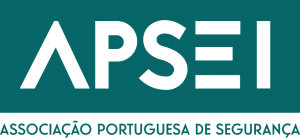
Media Partners


Sponsors



VENUE
How to get to Guimarães / Universidade do Minho? The nearest airport is Porto Airport, “Francisco Sá Carneiro Airport”. You can take the trip from the airport to Guimarães using a direct shuttle (for more information you can visit this link). Alternatively, you can take a taxi (~ 50 km), or a cheaper option is to go by metro, using the “Metro do Porto” (www.metrodoporto.pt), going from the airport to the Campanhã train station. The train to Guimarães (see schedule) departs from the train station of Campanhã. By car and using a navigation system, the University of Minho can be identified through the following GPS position: N 41º27’01.58 ” W 8º17’38.08 ”
CONTACTS
Organizing Committee
E-mail: sho2019@sposho.pt
Tel: +253 510 367 DPS, Universidade do Minho 4800-058 Guimarães PORTUGAL
Oficial Secretariat and Accomodation
Viagens Abreu, S.A. A/C Departamento de Congressos Avenida dos Aliados, 207 4000-067 Porto PORTUGAL
Tel: +351 222 043 570 fax: +351 222 043 693 e-mail: lurdes.catalino@abreu.pt
SPOSHO
URL: https://www.sposho.pt E-mail: sposho@sposho.pt
DPS, Universidade do Minho 4800-058 Guimarães PORTUGAL
